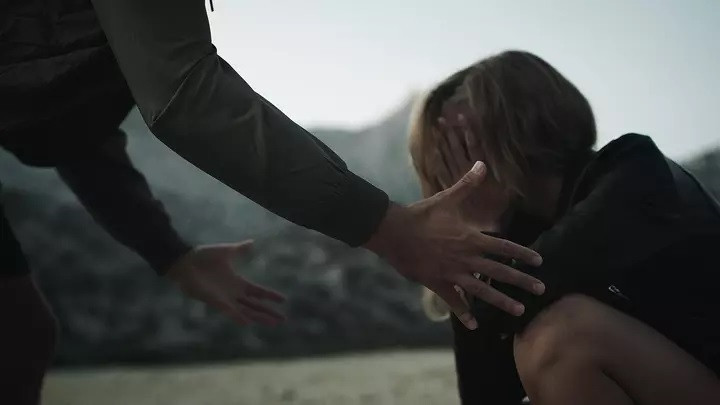
views
The Echoes of Silence, A Story of Survival. In the quiet town of Kokshetau, home to the tranquil beauty of Kazakhstan, where the majestic mountains meet the endless steppe, there lies a different kind of battle—one not fought on the fields but in the sanctuaries of homes.
Here, the voices of women resonate like thunder, each sharing a gripping tale of survival from the clutches of domestic violence. Olga's Struggle. Twenty-two-year-old Olga’s face bore the marks of a struggle that was both physical and emotional. She had married her husband five years ago, a union filled with dreams and hopes that swiftly faded as harsh realities took their place.
They were blessed with two sons, but financial problems quickly became the puppeteer controlling their lives, pulling the strings of resentment and blame. "I was always to blame", Olga recounted. "We had no food at home, nothing for the children. I dressed my husband as if he were a child”.
The domestic sphere meant to be a refuge transformed into a prison fostered by the very man to whom she had pledged her love. The culmination of torment reached its peak in early February, when Olga, pregnant with their third child, experienced an episode that shattered any remnants of hope. The aggressor, her husband, thrashed against her and her eldest son without a trace of remorse. "He started hitting even harder, pulling my hair.
Then my son—he hit my son", The words poured out—a release of pent-up fear and desperation. In a moment of sheer instinct and desperation for survival, Olga fled to a neighbor's house, her body battered, but her spirit unbroken. Blood and pain accompanied her to safety, leading to the call of the police, who arrived just in time to intervene.
It was here that Olga's fight for a better life began. The anguish inscribed on her face transformed into a canvas of strength, painting her journey at the crisis center, a temporary haven for women like her Nurgul's Redemption. Nurgul’s narrative echoed through the drapes that shaded her newfound sanctuary in the crisis center. She had spent sixteen relentless years trapped in a cycle of violence and fear. "Before the wedding, everything seemed perfect, But once he took me, I felt as if I were stolen—a possession rather than a partner", she revealed with a sorrowful gaze. Post-marriage, the facade unraveled.
The man who once enamored her with charm quickly morphed into a resentful figure, trapped in a spiral of idleness, consuming his days with alcohol while she struggled to keep the family afloat. "He drank and smoked while I worked. My heart ached for my children, but they needed a father.
I was terrified of what they might witness”, Nurgul said, her voice shuddering with the weight of her memories. It was on an ordinary night that Nurgul's worst fears materialized. In a drunken rage, her husband confronted her brandishing knives in a terrifying display. "I swear he had two knives—one long and one shaped like an axe.
He approached me and instinct kicked in. I screamed for help", she recounted. Luckily, the neighbor's timely arrival thwarted the chaos, But by then Nurgul's spirit had also been fractured. Hiding in the crisis center, Nurgul confronted her past choices—choices made out of love, guilt and the hope of creating a better life for her children. The refuge became a place of reflection, illuminating the shadows that tainted her existence: Svetlana's New Dawn. Svetlana, absorbed in her own turmoil, bore the scars of a prolonged battle with domestic violence inflicted by her husband's unrelenting alcohol addiction. For fourteen years, she learned to navigate the delicate balance between love and self-preservation, often leaning too heavily on the former.
"When he drank, things turned dark. I became the target of his aggression. each morning he would apologize, but the cycle never truly ended", she confessed a mixture of sadness and relief enveloping her, recounting. The turning point came when she could no longer bear the tension that permeated her household. Desperate for change, she turned to the authorities for aid. "I thought this is it. I showed the police the bruises and scars.
I needed a way out". Relocated to the crisis center, Svetlana began to view life through a different lens—a lens crafted by survival and resilience. As her husband promised to abandon his destructive habits, Svetlana grappled with the complexity of forgiveness, Understanding that every relationship could be salvaged only if both sides committed to genuine change. she awaited the day her home might reflect the love and companionship she had always envisioned.
A Shifting Paradigm: The stories of Olga Nurgul and Svetlana represent a tapestry woven with pain, resilience and the pursuit of hope. Each woman’s battle against domestic violence echoes a profound truth: that survival is not just a physical escape, but an emotional and psychological odyssey as well. In Kazakhstan, the ripple effects of these women's experiences are stirring the waters of societal change. The government, acknowledging the fight against domestic violence, has pledged to introduce stricter laws to protect the vulnerable. President Kassym-Jomart Tokayev’s commitment to reforming the legal framework offers a glimmer of hope that one day, tales like Olga’s, Nurgul’s and Svetlana’s will become mere whispers of a dark past rather than the cries of a living reality. Conclusion: The journey of these women, though riddled with fears and scars, is also filled with the whispers of survival—echoes that resonate deeply in the hearts of those who listen. As they rebuild their lives, they become beacons of hope, lighting the path for others trapped in similar circumstances. Their stories remind us that, while the fight against domestic violence is fraught with challenges, the strength to reclaim one’s life and voice never truly diminishes. In their words, we find not just a narrative of despair, but a powerful testament to resilience. As they take their steps away from the shadows, they invite us to recognize the strength within our own struggles, urging us to speak out—against the injustices faced and for a future where every home rings with laughter instead of fear.












Comments
0 comment